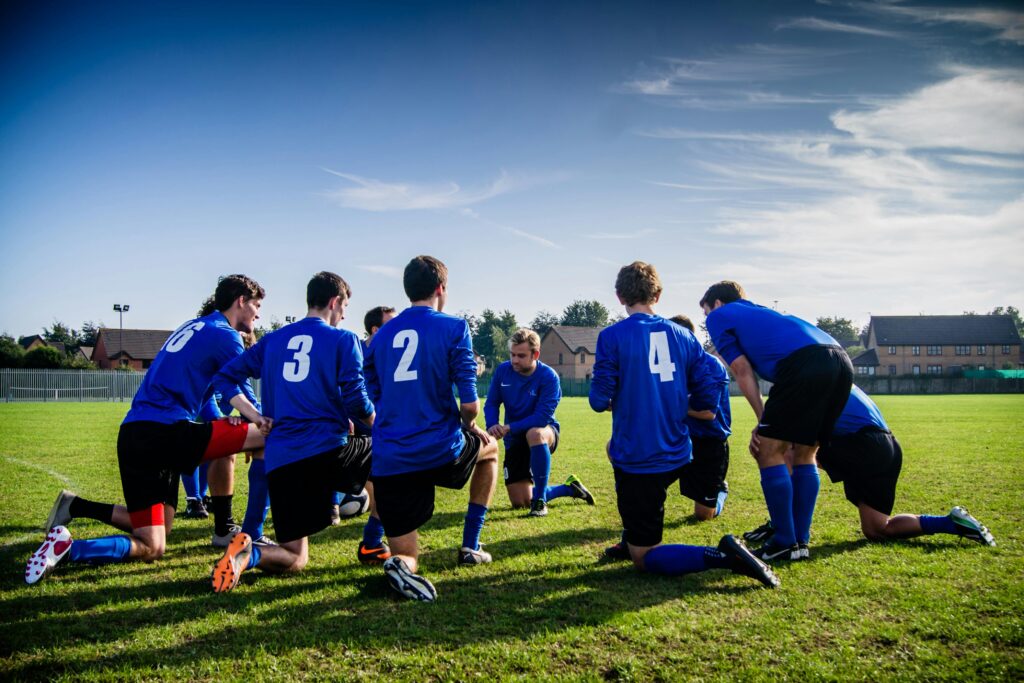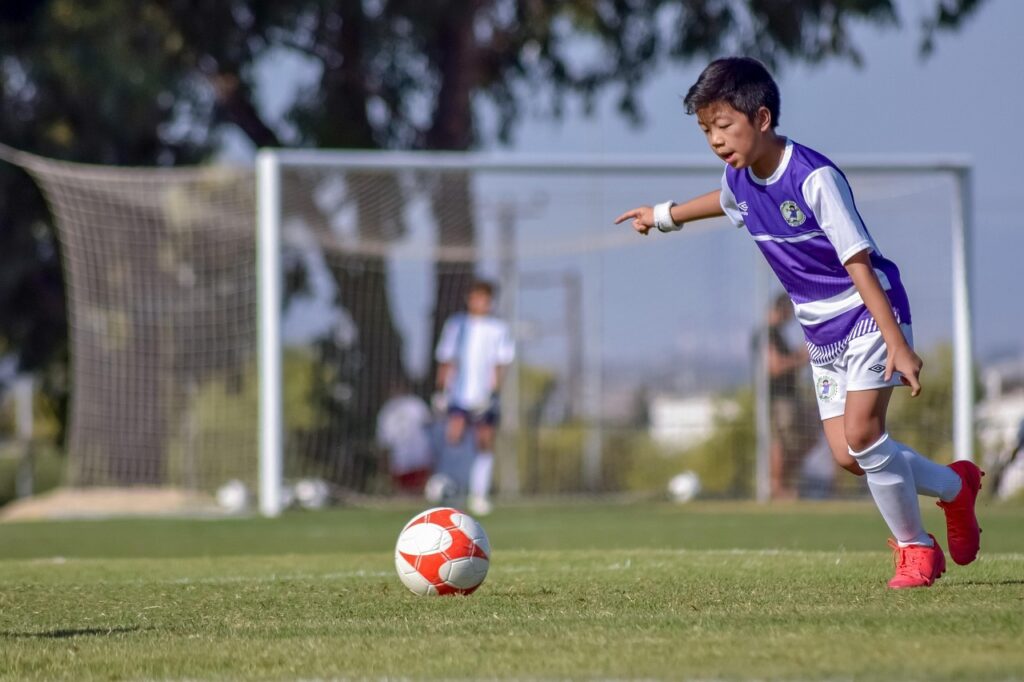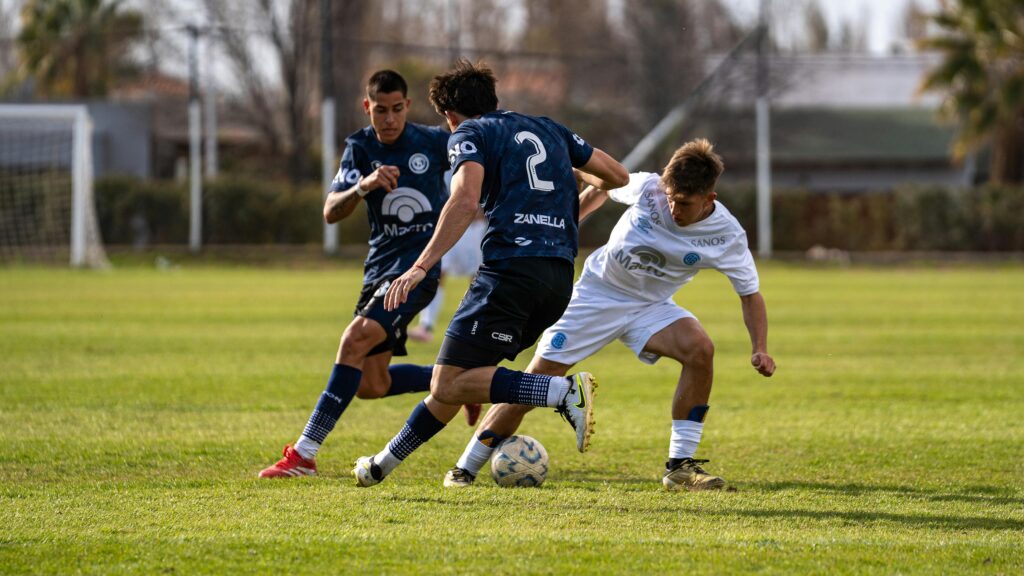Introduction
In the electrifying world of Indian football—where every dribble, pass, and goal can define your career—mental resilience is as crucial as physical fitness. Mindfulness for football players offers a scientifically backed path to sharpen focus, reduce performance anxiety, and recover faster from setbacks.
Yet, paradoxically, diving into mindfulness can sometimes feel like just another task on an already overloaded training schedule, adding pressure rather than alleviating it. In this post, tailored for Indian footballers aiming to perform at their peak, we’ll explore practical. You’ll learn how to harness mindfulness to elevate your game, manage stress, and maintain balance—without sacrificing the intensity that football demands.
1. Why Mindfulness for Football Players Matters

Football tests your body and mind simultaneously. A misplaced pass or a conceded goal can trigger negative self-talk (“I always choke under pressure”), leading to rushed decisions and mistakes. Mindfulness for football players means cultivating non-judgmental awareness of your internal states—thoughts, emotions, and bodily sensations—so you can spot stress reactions early and choose calm, focused responses on the pitch.
Long Paragraph (Experience & Authority):
Consider the story of Sunil, a midfielder for a top I-League club. Despite his technical brilliance, he struggled in high-stakes matches, feeling his heartbeat spike before every penalty. After integrating just three minutes of mindful breathing into his warm-up, Sunil reported calmer nerves and clearer decision-making—allowing him to dictate play rather than react to it.
Sports scientists confirm that brief mindfulness practices can lower cortisol levels (stress hormone) and enhance cognitive flexibility, critical for split-second choices in football . These findings demonstrate how mindfulness for football players isn’t a luxury—it’s a performance tool backed by expertise and real results.
2. Core Mindfulness Techniques for Footballers

2.1 The “Breath Between Plays” Reset
After each stoppage—throw-in, free-kick, or goal kick—take one conscious breath: inhale through the nose, feel your ribs expand, then exhale fully. This 3-second reset breaks the cycle of mounting stress and refocuses your mind on the next tactical moment.
2.2 Body Scan During Half-Time
At half-time, instead of replaying errors, close your eyes for 60 seconds in the locker room. Perform a quick head-to-toe scan: notice tight shoulders, jaw clenching, or shallow breathing. Release tension with a subtle shake or stretch. This mindfulness for football players subheading technique restores balance for the second half.
2.3 Visualization with Sensory Detail
Before kickoff, sit quietly and vividly imagine your first touch, the stadium crowd, even the smell of the grass. Engage all five senses—sound of fans, feel of the ball, sight of teammates—so your brain rehearses success in real time.
2.4 Mindful Listening in Team Briefings
During tactical talks, practice one-pointed attention: listen fully to your coach’s words without mentally scripting your own questions. This enhances comprehension of complex strategies and fosters team trust.
2.5 Post-Match Gratitude Reflection
After the final whistle, spend two minutes noting three positives—an accurate pass, defensive block, or supportive teammate. This simple ritual counteracts negativity bias, anchoring confidence for training ahead.
Hey Gamers! If you feel frustration while playing games. Then, this Article is for you.
3. Integrating Mindfulness into Your Football Routine

- Anchor to Training Drills: Link breath resets to set-piece practice or shooting drills—each repetition becomes a mini mindfulness cue.
- Use Visual Cues: A discreet sticker inside your boots reading “Breathe” prompts micro-pauses without disrupting drills.
- Team Accountability: Introduce a 30-second group breathing break before training starts—building collective calm and focus.
- Track Progress: Log which technique you used and any shift in focus, stress, or performance metrics (e.g., pass completion rate).
Read this article to know what impact it has on a footballer when he/she practices mindfulness.
4. Scientific & Expert Insights (Trustworthiness)
- Cortisol Reduction: A 2018 study found that soccer players practicing 5-minute mindfulness sessions reduced cortisol responses by 20% during simulated match stress .
- Enhanced Neuroplasticity: Neuroscientists show that consistent mindfulness increases gray matter density in brain regions related to attention and emotional regulation—key for in-game resilience .
These authoritative findings underline why mindfulness for football players is more than a wellness trend—it’s a high-performance strategy.
If you are an athlete and want to improve your performance. Then, tihs Article is just for you.
Q&A Section
- Q: How long do I need to practice mindfulness each day?
A: Start with 3–5 minutes daily—before training or sleep. Consistency matters more than duration. - Q: Can mindfulness help me recover faster after games?
A: Yes—techniques like body scans reduce muscle tension and accelerate parasympathetic (rest) activation, aiding physical recovery. - Q: What if I feel self-conscious practicing mindfulness with teammates?
A: Micro-practices (like 3-second breaths) are discreet. Frame them as “focus drills” to gain buy-in. - Q: Will mindfulness slow me down on the pitch?
A: On the contrary—brief resets enhance reaction times by clearing mental clutter between plays. - Q: How do I maintain mindfulness under extreme pressure?
A: Anchor to sensory cues—feel the grass under your feet or the texture of the ball—to ground your awareness instantly.
FAQ Section
- What equipment do I need?
None—just your breath and attention. A stopwatch or app timer can help track sessions. - How quickly will I see benefits?
Some calm appears immediately; sustained improvements in focus and stress resilience often emerge within 2–3 weeks. - Can youth academies teach this?
Absolutely—short mindful drills can be integrated into warm-ups for U-14 teams and above. - Is mindfulness suitable during travel to away games?
Yes—practices like the Breath Between Plays can be adapted to bus or flight settings to reduce travel stress. - How do I measure improvements?
Combine subjective reports (reduced anxiety) with objective metrics (pass accuracy, distance covered, recovery HR).
Friendly Closing Message
On and off the pitch, mindfulness for football players empowers you to harness calm, clarity, and resilience—transforming stress into strategic advantage. By weaving micro-practices like breath resets, body scans, and sensory anchoring into your daily routine, you’ll not only elevate your performance but also safeguard your mental well-being for a long, successful career. Start today: choose one technique, try it at your next training session, and watch your game—and your mind—reach new heights. 🚀⚽🧘♂️

Pingback: Mindful Recovery Routines: How They Speed Up Your Healing (Yet Can Feel Like Extra Work) - Calm Within Minutes
Pingback: Mindfulness for Strikers: How It Sharpens Your Finishing (Yet Can Distract Your Instincts) - Calm Within Minutes
Pingback: Mindfulness for Match Preparation: Calm, Focused & Ready to Perform - Calm Within Minutes
Pingback: Pre-Season Mindfulness Routine for Footballers: Build Focus, Resilience & Seasonal Readiness - Calm Within Minutes